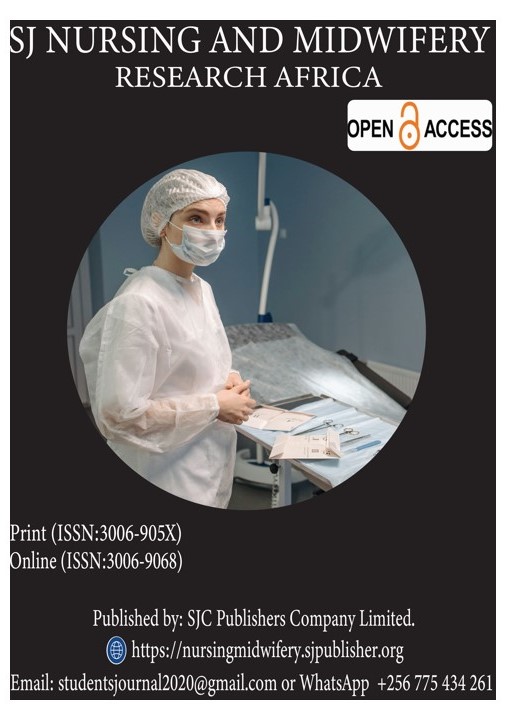KNOWLEDGE OF NURSING STUDENTS TOWARDS COVID-19 VACCINATION AT BISHOP STUART UNIVERSITY. A CROSS-SECTIONAL STUDY.
DOI:
https://doi.org/10.51168/fazpyd49Keywords:
Knowledge, COVID-19, Vaccination, Nursing studentsAbstract
Background:
The study aims to document the Knowledge of Nursing students about COVID-19 vaccination at Bishop Stuart University.
Methods:
The study employed a cross-sectional design and used quantitative data collection techniques. The study was conducted among nursing students of Bishop Stuart University Ruharo campus. A simple random sampling method was used to choose participants and a sample size of 139 Respondents was selected for the study. The data collected from questionnaires was entered and analyzed using a statistical package for social scientists (SPSS).
Results:
The study had a higher percentage of female participants (64.0%) than male participants (36.0%). Anyone who scored over 75% was regarded as having excellent knowledge, one who received between 50% and 75% was seen as having good knowledge, and one who received less than 50% was regarded as having poor knowledge (below 3 questions correctly answered).
In regards to the vaccines used in Uganda, AstraZeneca was 123(88.5), Johnson 123(88.5), Moderna 111(79.9), Covaxin 10(7.2), and Pfizer 89(64.0). Regarding vaccine safety, those safe without side effects were 20(14.4), those safe with some side effects 101(72.2), and those not safe with obvious side effects 18(12.9)Participants who got infected with COVID-19 after vaccination were 127(91.4) and those who were not infected after the vaccination 12(8.6), those that were suffering from COVID-19 and yet they were vaccinated were 39(28.1) and those that were not vaccinated and yet suffered from COVID-19 100(71.9), Those that were vaccinated with a second different vaccine were 103(74.1) and those who were not 36(25.9)
Conclusion:
Most of the participants had strong awareness about COVID-19 vaccination.
Recommendation:
The government should also initiate a fight against negative information circulating on social and news media replacing it with correct and rightful information as far as COVID-19 vaccination is concerned.
Downloads
Published
Issue
Section
License
Copyright (c) 2024 Rogers Anyijukire, Andrew Natwijuka (Author)

This work is licensed under a Creative Commons Attribution-NonCommercial-NoDerivatives 4.0 International License.




